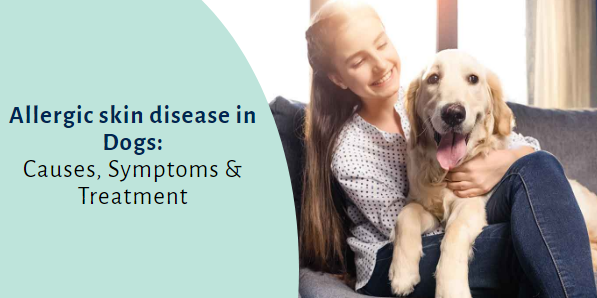Apoquel for Dogs: Allergic Skin, Causes, Symptoms & Treatment
Allergic Skin disease in dogs:
- Allergic Skin disease in dogs:
- The four major types of allergic skin diseases in dogs are:
- What are the symptoms of allergic skin diseases in dogs?
- Why does a skin infection in dogs smell so bad?
- How to treat dog rashes?
- Know more about Apoquel for dogs:
- What is the difference between Apoquel for dogs treatment and other treatments?
- Side Effects of Apoquel for dogs:
- Apoquel Dosage for Dogs:
- Safety Information of Apoquel for Dogs:
- FAQs:
- Does Apoquel for dogs fall under the category of steroids?
- Is it safe to give Apoquel with food?
- Can Apoquel be used for a short time to cure a flare-up?
- What is the recommended duration of treatment with Apoquel for dogs?
- What to expect from my dog’s treatment with Apoquel?
- Is it OK to use Apoquel with other drugs?
- References:
Allergic skin disease is one of the most common problems in dogs. It is caused due to flea allergies, food allergies, and environmental allergens such as pollens, dust, and molds. Apoquel for dogs is the best medication for dogs with skin diseases. Oclacitinib is an active medicament of dog allergy medicine Apoquel.
Contrasting to commonly used therapies like antihistamines, steroids, or cyclosporines, Apoquel for dogs is the only precise treatment considered to treat the itch. The medication targets the root cause of the itch. Also, it has a negligible effect on other body parts of the dog, unlike other medicines.
The four major types of allergic skin diseases in dogs are:
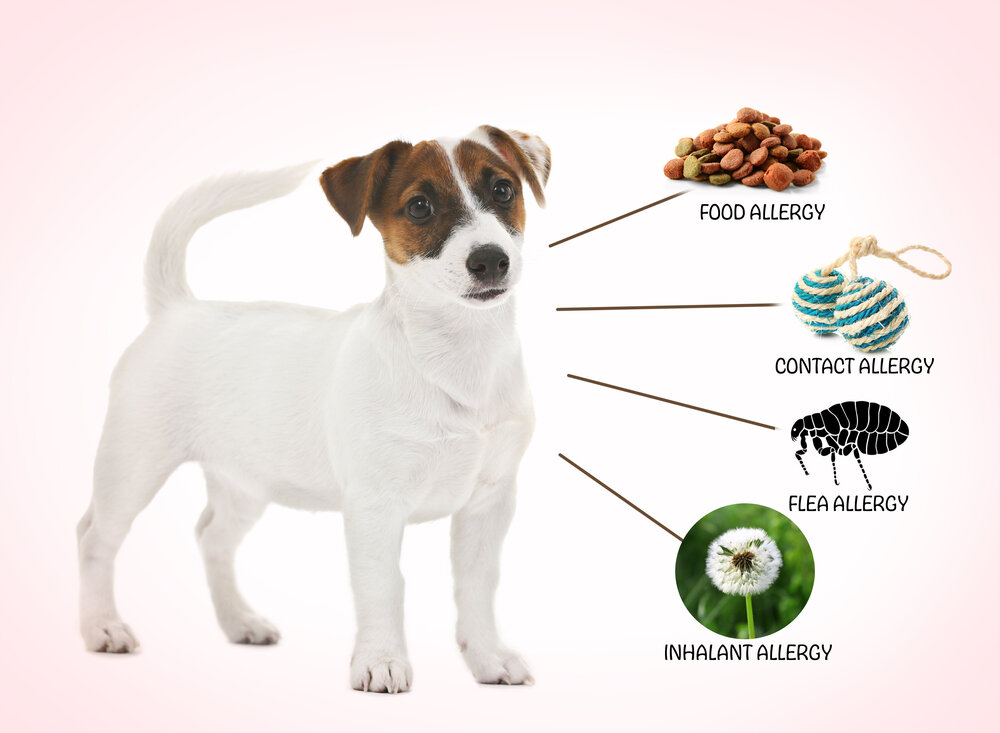
Flea Allergy Dermatitis:
Some dogs can develop an allergic reaction to fleabites. When a flea bites the dog, it injects saliva into the skin of your pet. Flea saliva can initiate allergic reactions in dogs like severe itching on the skin mostly at the base of the tail, red and inflamed skin, scabs, and skin lesions.
Food Allergies:
Dogs can have allergies to foods such as dairy, egg, chicken, mutton, fish, and wheat. Food allergies can cause vomiting, diarrhea, excessive itching and scratching at feet and ears, swelling on the face, and hives.
Atopic Dermatitis:
It is a chronic allergic skin disease caused by environmental allergens such as dust, pollen, and mold. Dogs suffering from atopic dermatitis often have itchy skin and rash on the feet, ears, and face.
Contact Allergies:
Dogs can be allergic to any chemicals used in deodorants, shampoo, insecticides, or cleaning products.
What are the symptoms of allergic skin diseases in dogs?
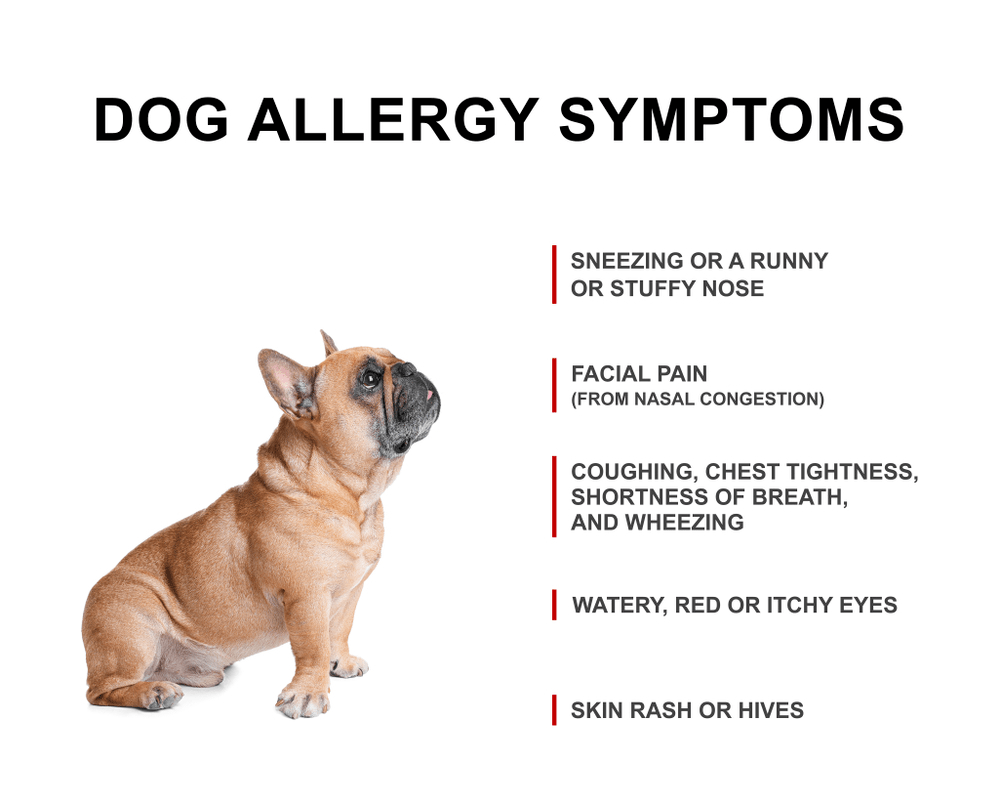
Dogs usually develop symptoms of allergic reactions between 1-6 years of age. The common symptoms of skin allergies in dogs are listed below:
- Increased itching
- Excessive scratching at feet, ears, armpits, or groin
- Rubbing and licking of face, feet, and ears
- Red and yellow spots on the skin
- Biting the skin
- Sneezing, red and watery eyes
- Ear infections and discharge
- Hair loss
- Musty smell
- Weight loss, vomiting, and diarrhea
Why does a skin infection in dogs smell so bad?
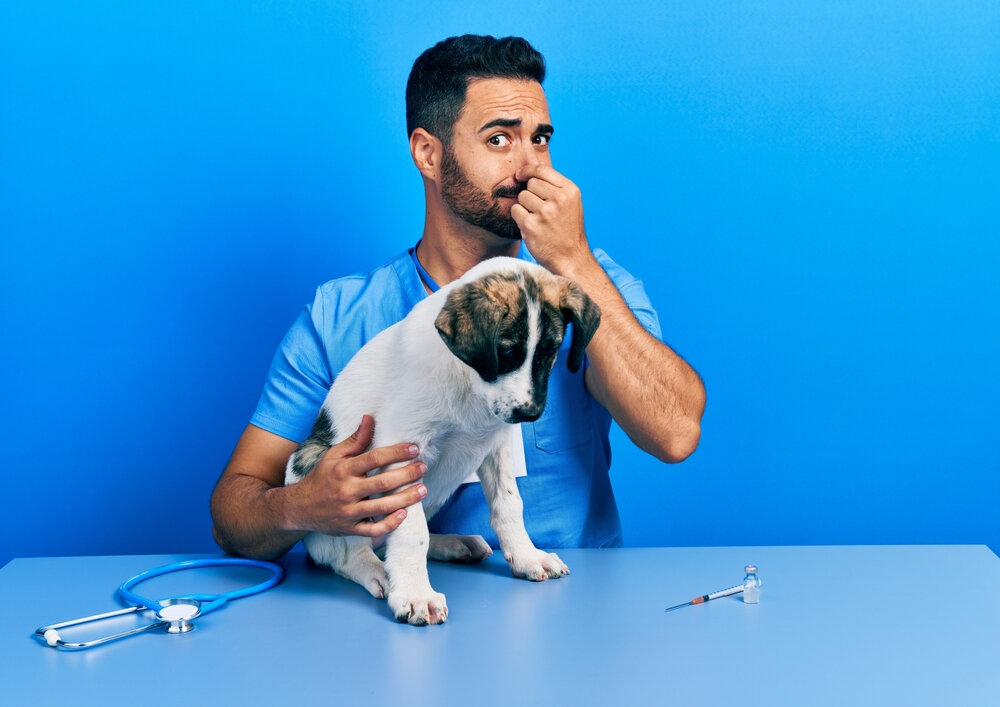
Allergic skin diseases can increase the secretion of oily substances from the glands in the skin. These substances make your dog smell bad. Moreover, allergic diseases result in inflammation and itching, causing your dog to scratch, bite, and lick its skin. All these conditions allow bacteria and yeast to multiply on the skin. Excessive growth of these microbes on your dog’s skin causes a foul smell.
How to treat dog rashes?
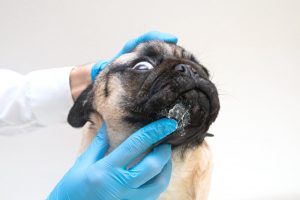
Several treatment options are available for dog rashes based on the severity and causes of the condition.
- Medicated shampoos help remove oily substances, dust, and pollen from the skin/coat and reduce skin redness, itching, and rash.
- Antiseptic washes such as dilute iodine are used to clean infected skin areas.
- Antibiotics can be used in some cases to treat skin infections.
- Medications and collars are very effective in preventing and killing fleas.
- Oral medications such as Apoquel for dogs, Antihistamines, and Prednisolone are used to treat allergic reactions, inflammation, itching, and redness.
Know more about Apoquel for dogs:
Apoquel (oclacitinib) is an oral tablet used to treat itching in dogs caused by allergic skin diseases. It is effective against most common allergies including, flea allergy, food allergy, contact allergy, and atopic dermatitis. The use of Apoquel for dogs is considered safe over one year of age and weighing over 3 kg.
Unlike other medications, Apoquel works by inhibiting proteins that cause inflammation such as cytokines. It thereby reduces itching, redness, and swelling of the skin. Apoquel for dogs is a fast-acting medication that relieves the symptoms of allergic skin disease within 4 hours. Apoquel efficiently controls the itching sensation within a day. Also, Apoquel eases irritation in the long term.
Apoquel is the brand drug of Oclacitinib, an FDA-approved immune suppressant medication. The drug belongs to the class of Janus Kinase (JAK) inhibitors manufactured by Zoetis.
Apoquel works by blocking JAK-1 and -3 signaling that might usually take place when a cytokine binds to a receptor present on the cell surface. This involves inhibiting the effects of inflammatory cytokines released from lymphocytes (IL-2, -4, -6, -13) in addition to IL-31. It is a cytokine with direct involvement in the itchy feeling. JAK signaling is significant in the bone marrow working too. Apoquel for dogs functions in a different manner than steroids, antihistamines, or cyclosporine.
Apoquel acts fast, generally within 24 hours, to minimize the itching sensation. It is very rare to experience gastrointestinal upsets with Apoquel as it happens with cyclosporine. Apoquel’s antipruritic effects weaken rapidly, within 12-24 hours. As a result, the Apoquel for dogs requires to be given regularly in a majority of cases.
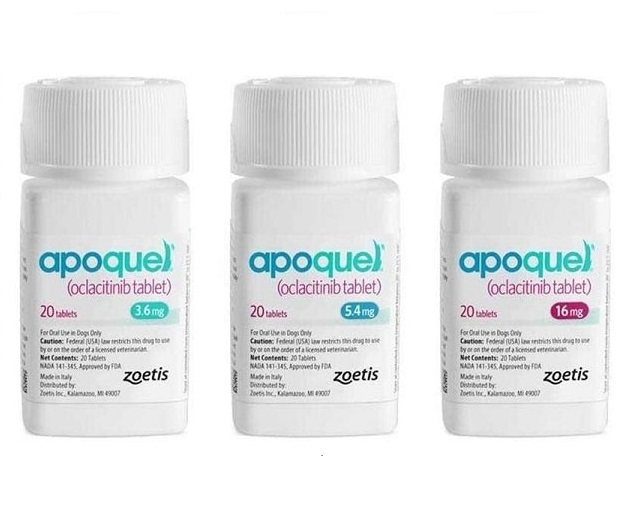
Lowest Price for Apoquel (Oclacitinib) Online
| Prescription Drugs | Price | Shop |
|---|---|---|
| BRAND APOQUEL 16MG (UK) | $72.80 for 20 Tablet | Buy |
| BRAND APOQUEL 3.6MG (UK) | $48.96 for 20 Tablet | Buy |
| BRAND APOQUEL 5.4MG (UK) | $48.96 for 20 Tablet | Buy |
What is the difference between Apoquel for dogs treatment and other treatments?
You might have tried other treatments to ease the allergic itch of your dog. Getting your dog, the appropriate and prompt treatment may assist rapidly in easing their signs and evade the costs related to treatments that just don’t do the trick.
Learn what is the difference of Apoquel for dogs with other treatments.
Antihistamines:
- Might ease allergies in human beings however, are often not successful at lowering allergic itch in dogs.
- Might put your dog in danger of the development of secondary skin infection or allergic itch. As they don’t manage the fundamental cause and the itch carries on.
- Offer slight or no assistance in managing flare-ups in many dogs with allergic itch.
Steroids:
- Might provide relief however might not be an appropriate alternative if your dog demands chronic treatment.
- More than half of the dog owners reported side effects with steroids.
- Might lead to side effects including an increase in appetite, too much urination and drinking, and behavior changes, like increased anxiety, even when in the short-term use.
- In a safety study, the most common side effects reported with Apoquel for dogs were lethargy, anorexia, vomiting, diarrhea, and bloodwork modification.
Home Remedies:
Lotions, oatmeal baths, or other OTC topical drugs might offer some brief relief. However, they don’t get to the underlying reason for allergic itch.
Side Effects of Apoquel for dogs:

In research studies, side effects of Oclacitinib were mild and were like those of dogs who consumed a sugar pill (placebo). Apoquel side effects include vomiting, diarrhea, anorexia, lumps, and lethargy. And these side effects go away after some time. Apoquel for dogs can also increase the risk of infections such as demodicosis and neoplasia. With this medication, there are some side effects commonly related to the use of steroids, including too much panting and urinating.
Apoquel Dosage for Dogs:
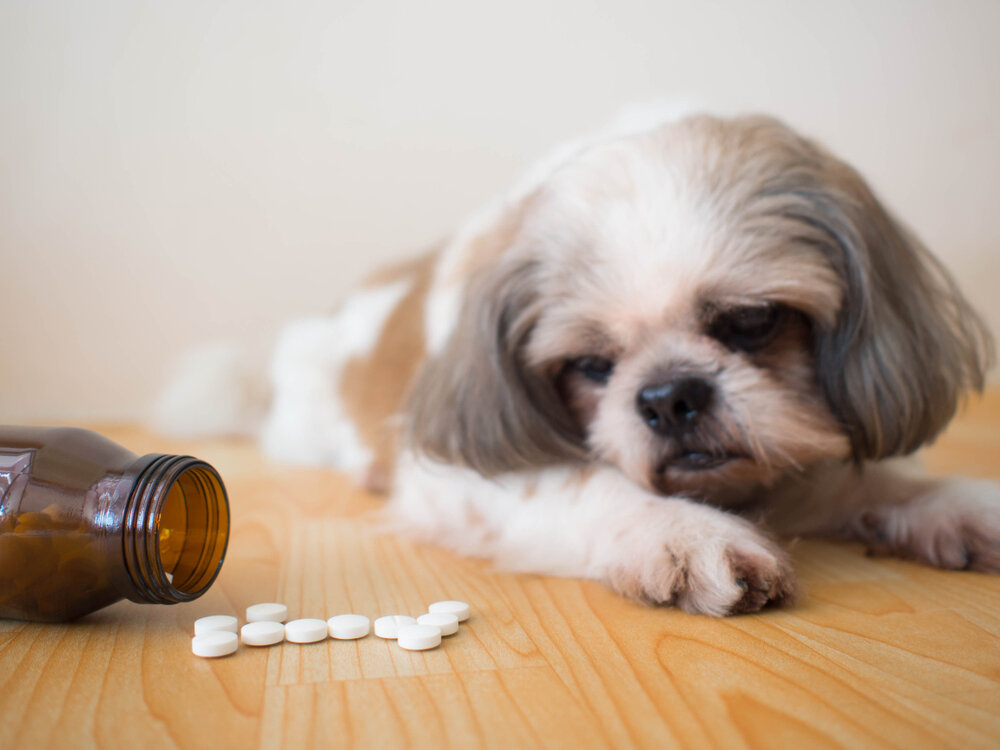
Apoquel for dogs is a prescription medication available in 3.6 mg, 5.4 mg, and 16 mg tablets. Apoquel tablets are given to dogs orally with or without food twice daily for two weeks. The medication is then given once daily at the same dose to maintain an effective drug concentration. The dosage of the medicine depends on the weight of your dog.
Apoquel For Dogs Dosing Chart
| Weight | Dosage |
|---|---|
| 6.6-9.9 lbs | ½ of a 3.6 mg tablet two times a day |
| 10-14.9 lbs | ½ of a 5.4 mg tablet two times a day |
| 15-19.9 lbs | One 3.6 mg tablet two times a day |
| 20-29.9 lbs | One 5.4 mg tablet two times a day |
| 30-44.9 lbs | ½ of a 16 mg tablet two times a day |
| 45-59.9 lbs | Two 5.4 mg tablets two times a day |
| 60-89.9 lbs | One 16 mg tablet two times a day |
| 90-129.9 lbs | 1½ 16 mg tablets two times a day |
| 130-175.9 lbs | Two 16 mg tablets daily |
Safety Information of Apoquel for Dogs:
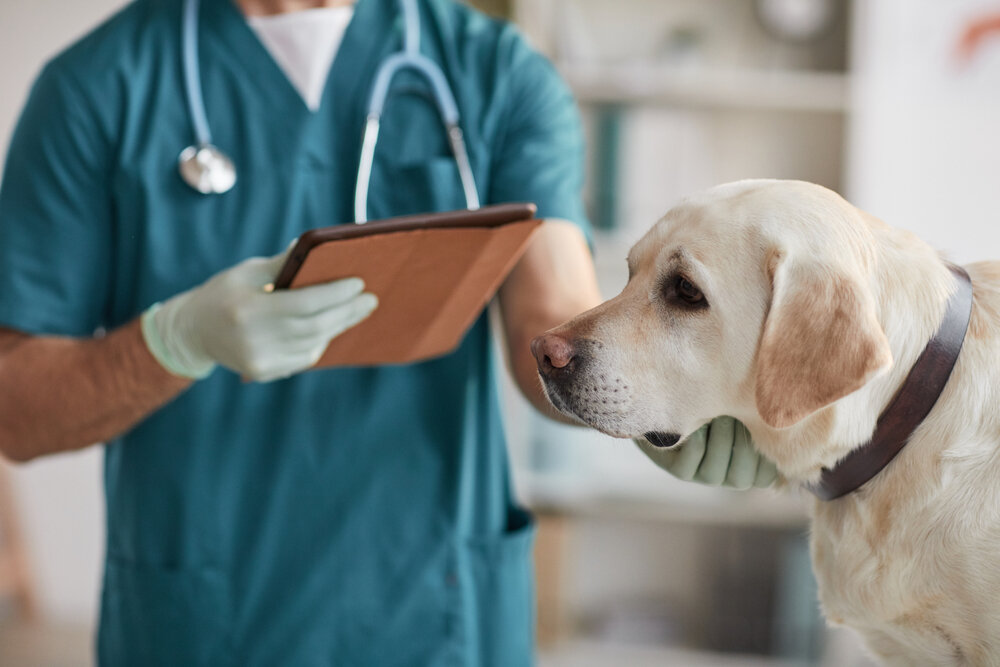
- Apoquel is not for use in dogs under one year or with other serious infections.
- Do not give the medicine to dogs who are allergic to any of the ingredients of Apoquel.
- The testing of Apoquel has not been done in dogs getting medicines such as medications for treating skin problems like cyclosporines and corticosteroids.
- Do not give the medication to pregnant, lactating bitches, or breeding dogs.
- Pet owners should wash their hands after giving Apoquel to their dogs.
- Also, Apoquel for dogs can be used safely with common drugs such as vaccines, parasiticides, and antibiotics.
- Apoquel for dogs is thought to enhance the possibility of developing serious infections. Also, the medication might result in existing parasitic skin infections or pre-existing cancers deteriorating.
FAQs:
Does Apoquel for dogs fall under the category of steroids?
Apoquel is not a steroid, antihistamine, or cyclosporine. It is a new category of medications with fewer adverse effects than come with other therapies.
Is it safe to give Apoquel with food?
Apoquel can be given to your dog with or without food. Meals do not affect the activity of Apoquel for dogs.
Can Apoquel be used for a short time to cure a flare-up?
Yes. You can make use of Apoquel for dogs in the short term. The drug starts easing the itch within four hours, with actual control within a day.
What is the recommended duration of treatment with Apoquel for dogs?
The FDA has not put any limitations on the utility of Apoquel for dogs. You may carry on treating your dog with Apoquel for as long as your veterinarian calls it suitable. In a research study, dogs were given treatment with Apoquel for more than 2 years and showed only negligible side effects.
What to expect from my dog’s treatment with Apoquel?
Apoquel for dogs is not a treatment, hence it won’t prevent the illness from occurring. It would just prevent the effects of the ailment that generally crop up as itch and swelling. By reducing the extent of itch and inflammation, you may reduce the development of the illness. And, considerably improve the standard of living for your dog. Your dog would possibly still itch sporadically, but this must be greatly reduced.
If you missed giving a tablet to your dog at right time, there will be no ill effects. It would just imply that your dog might become irritable again. It is suitable to give Apoquel tablet when you remember. And, then try returning to the routine. If you are giving Apoquel daily and your dog is still itchy, then contact your vet as at times this implies that they might be something else that demands treatment like yeast or bacterial infection.
A few conditions are temporary and only require a short course of treatment, or recurrent treatment. Also, a few conditions are life-long and continuing and these dogs might require treatment for a majority of days or the rest of their lives.
Is it OK to use Apoquel with other drugs?
Apoquel for dogs can be safely used with other drugs and would exert no ill effects. It is not recommended to use Apoquel with other oral or injectable drugs for allergic skin disease.
These might include chronic use of steroids; however, shampoos and topical treatments can be used. Your dog might have most routine treatments including vaccination while on Apoquel for dogs. Discuss with your veterinarian to be certain.

